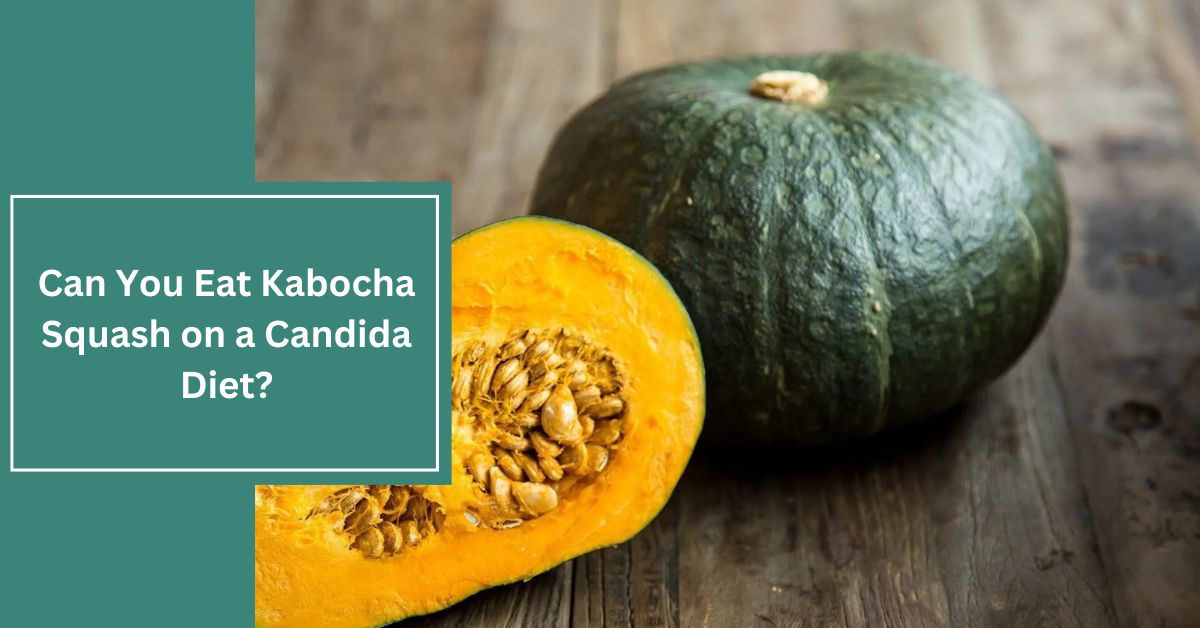The Candida diet is a specialized eating plan designed to combat an overgrowth of Candida, a type of yeast that naturally exists in the body. Many individuals following this diet wonder, “Can you eat kabocha squash on a candida diet?” The answer isn’t a simple yes or no, as it depends on several factors, including the stage of the diet and portion control.
This article explores whether kabocha squash fits into a Candida diet and how to enjoy it responsibly.
What Is a Candida Diet?
The Candida diet focuses on eliminating foods that feed Candida and emphasizing those that help restore balance in the body. The key principles include:
- Avoiding high-sugar foods and refined carbohydrates.
- Limiting starchy vegetables and grains.
- Prioritizing non-starchy vegetables, lean proteins, and healthy fats.
With these principles in mind, it’s important to evaluate kabocha squash’s nutritional profile.
Nutritional Profile of Kabocha Squash:
Kabocha squash, also known as Japanese pumpkin, is a nutrient-dense vegetable. It contains:
- Carbohydrates: Approximately 12 grams per cup (cooked).
- Fiber: About 2.7 grams per cup, which helps moderate blood sugar spikes.
- Vitamins and Minerals: Rich in vitamins A and C, as well as potassium.
However, its carbohydrate content classifies it as a starchy vegetable, which raises the question: Can you eat kabocha squash on a candida diet?
Can You Eat Kabocha Squash on a Candida Diet?
The short answer is: yes, in moderation. While kabocha squash is a starchy vegetable, its natural sugars are less likely to fuel Candida growth when consumed in controlled amounts. Here’s how to incorporate it safely:
- Portion Control Is Key Keep your intake of starchy vegetables, including kabocha squash, to no more than 1 cup per day. This ensures you don’t exceed the carbohydrate limit typically recommended on the Candida diet.
- Pair with Non-Starchy Vegetables Combine kabocha squash with non-starchy vegetables like broccoli, spinach, or zucchini. This balances your plate and minimizes the overall glycemic impact.
- Stick to Later Stages of the Diet During the initial phase of the Candida diet, starchy vegetables are often restricted. Kabocha squash can be reintroduced in later stages when your symptoms are under control.
Health Benefits of Kabocha Squash on a Candida Diet:
Including kabocha squash in your Candida diet, when done correctly, offers several benefits:
- Rich in Antioxidants: The high levels of beta-carotene and vitamin C support immune function and help reduce inflammation.
- Supports Digestive Health: Its fiber content promotes gut health by aiding digestion and reducing bloating, common issues during a Candida cleanse.
- Energy Boosting: The natural carbohydrates in kabocha squash provide sustained energy without heavily impacting blood sugar levels when consumed in moderation.
How to Prepare Kabocha Squash on a Candida Diet?
If you decide to include kabocha squash, preparation matters. Follow these tips to keep your dish Candida-friendly:
- Avoid Added Sugars: Skip recipes that involve sweeteners, syrups, or high-sugar sauces.
- Opt for Steaming or Roasting: These cooking methods retain nutrients without introducing unhealthy fats or additives.
- Incorporate Herbs and Spices: Use Candida-safe seasonings like turmeric, garlic, and thyme to enhance flavor and add antifungal properties.
Understanding the Glycemic Index of Kabocha Squash:
One of the key factors to consider when deciding can you eat kabocha squash on a candida diet is its glycemic index (GI). The glycemic index measures how quickly a food raises blood sugar levels. Kabocha squash has a relatively low GI compared to other starchy vegetables like potatoes, making it a better choice for managing Candida.
Foods with a low GI release sugar slowly into the bloodstream, which helps prevent spikes that could feed Candida. By opting for kabocha squash over higher-GI alternatives, you can enjoy the benefits of a starchy vegetable without compromising your progress on the Candida diet.
The Role of Fiber in Kabocha Squash:
Another reason kabocha squash can be part of a Candida diet is its fiber content. Fiber plays a critical role in supporting gut health, which is central to combating Candida overgrowth. Insoluble fiber in kabocha squash acts as a prebiotic, feeding the beneficial bacteria in your gut.
This strengthens your microbiome, creating an environment less hospitable to Candida. Additionally, fiber slows the digestion of carbohydrates, further reducing the risk of blood sugar spikes. Incorporating fiber-rich vegetables like kabocha squash can also promote regular bowel movements, helping to expel toxins and fungal byproducts from your system.
Combining Kabocha Squash with Antifungal Foods:
To maximize the benefits of kabocha squash while staying aligned with the Candida diet, consider pairing it with antifungal foods. Garlic, for example, contains allicin, a compound known to combat Candida. Coconut oil, another potent antifungal, can be used to roast or sauté kabocha squash.
Herbs like oregano, thyme, and rosemary not only enhance the flavor of kabocha squash but also provide natural antifungal properties. By combining kabocha squash with these Candida-fighting ingredients, you create a meal that satisfies your cravings while actively working against yeast overgrowth.
Kabocha Squash as a Transition Food:
For those transitioning out of the restrictive phases of a Candida diet, kabocha squash serves as an excellent bridge food. After weeks or months of avoiding starchy vegetables and grains, reintroducing foods like kabocha squash can help you expand your diet without overwhelming your system.
Its mild sweetness and versatility make it a comforting choice during this transition period. Whether used in soups, roasted as a side dish, or pureed into a mash, kabocha squash can help you gradually shift back to a more varied and sustainable eating pattern while continuing to support gut health and Candida balance.
Conclusion:
So, can you eat kabocha squash on a candida diet? Yes, but with careful moderation and timing. This nutrient-rich vegetable can be a valuable addition to your diet, providing essential vitamins and minerals while supporting digestive health. Remember to monitor your portions and balance your meals to maintain the principles of the Candida diet.

Leave a Reply